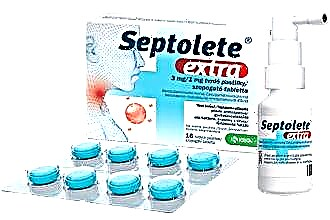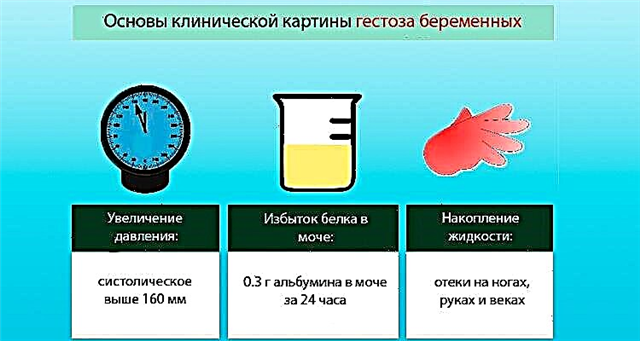Anesthetic (analgesic) is a synthetic and natural drug designed to relieve pain. It is used to reduce discomfort in the throat with the development of inflammatory reactions in the mucous membrane.
 Symptomatic drugs reduce the sensitivity of pain receptors, which helps to alleviate the clinical manifestations of pathology.
Symptomatic drugs reduce the sensitivity of pain receptors, which helps to alleviate the clinical manifestations of pathology.
Pain reliever for angina may have antipyretic and anti-inflammatory properties.
Such drugs are used to eliminate the symptoms of tonsillitis at the stage of exacerbation of catarrhal processes. The systematic use of drugs contributes to the elimination of pain in the lymphadenoid formations and mucous membrane of the oropharynx.
Classification of pain relievers
What types of analgesics can be used for sore throat discomfort? It was agreed that all drugs that contribute to the weakening of pain are divided into two groups: narcotic and non-narcotic. In the treatment of infectious diseases, they resort to the use of non-narcotic medications, among which there are:
- antipyretics - drugs that normalize thermoregulation, which helps to eliminate subfebrile and febrile fever;
- salicylates - drugs that include aspirin; help to eliminate pain in almost any localization;
- aminophenols - medicines with pronounced antiseptic properties; promote the denaturation of proteins contained in disease-causing cells;
- NSAIDs are broad-spectrum drugs that relieve discomfort and the synthesis of inflammatory mediators.
To one degree or another, all analgesics have a desensitizing effect, which helps to reduce the body's sensitivity to metabolites of pathogenic bacteria. Due to this, allergic reactions that occur with tonsillitis are eliminated: hyperemia, tissue swelling, inflammation and high temperature.
Local anesthetics
Local anesthetics can be used to relieve discomfort in the throat in adults. The drugs block the conduction of nerve impulses from pain receptors to the corresponding areas of the cerebral cortex. Due to this, the course of ENT disease is facilitated, which is due to the absence of discomfort at the site of localization of foci of inflammation.

Local pain relievers are available in several pharmacological forms, namely:
- tablets;
- lozenges;
- sprays;
- aerosols;
- gels;
- rinsing solutions.
The active substances of local anesthetics are practically not absorbed into the bloodstream, which prevents the occurrence of adverse reactions.
For the treatment of tonsillitis in adults, tablets and aerosol forms of anesthetics are most often used. The components of the drugs quickly penetrate the sites of inflammation, which helps to eliminate catarrhal processes and pathogens in the affected tissues.
Systemic analgesics
Strong intoxication of the body causes pain not only in the throat, but also in the muscles. To quickly stop the symptoms of tonsillitis, it is advisable to use systemic analgesics. The active components of drugs affect the synthesis of arachidonic acid, which is involved in the production of cyclooxygenase, an enzyme that stimulates the production of prostaglandins.
Inhibition of the synthesis of prostaglandins prevents the occurrence of inflammatory reactions in the tissues, due to which the discomfort in the mucous membranes of the ENT organs decreases. The following types of drugs can be used to treat adults:
 "Ibuprofen" - has antiphlogistic, analgesic and antipyretic effects; it is used to eliminate myalgia and sore throat of moderate intensity;
"Ibuprofen" - has antiphlogistic, analgesic and antipyretic effects; it is used to eliminate myalgia and sore throat of moderate intensity;- "Naproxen" - helps to eliminate pain and subfebrile fever by inhibiting the activity of inflammatory mediators and lysosomes involved in the synthesis of arachidonic acid;
- "Nurofen" - reduces the sensitivity of pain receptors to the effects of serotonin (an inflammatory mediator), which contributes to the regression of catarrhal processes and pain syndrome.
Analgesics of systemic action affect the processes of hematopoiesis, therefore they cannot be used without the recommendation of a specialist in hemorrhagic diathesis and hypertension.
Lollipops and lozenges
Pain relievers and lozenges act exclusively on the mucous membranes of the sore throat. They practically do not cause side reactions, therefore they are dispensed in pharmacies without a prescription. Local anesthetics are used as an adjunct to etiotropic and pathogenetic therapy. They only eliminate local manifestations of pathology, but do not destroy the pathogenic flora in the foci of inflammation.
For the treatment of acute angina in adults, medications such as:
 "Septolete" - the essential oils of the tablets have an analgesic effect on the affected areas of the ciliated epithelium, and benzalkonium chloride inhibits the activity of pathogens in the ENT organs;
"Septolete" - the essential oils of the tablets have an analgesic effect on the affected areas of the ciliated epithelium, and benzalkonium chloride inhibits the activity of pathogens in the ENT organs;- "Strepfen" - lozenges, the active components of which interfere with the synthesis of both isoforms of cyclooxygenase, which prevents inflammation and discomfort in the throat;
- "Strepsils" is an antiphlogistic and analgesic drug with pronounced fungicidal properties; used to relieve the manifestations of tonsillitis of mixed flora;
- "Faringosept" is a pathogenetic drug that destroys most gram-positive bacteria; can be used as the main drug for monotherapy of tonsillitis in adults, due to its high efficiency.
Only a specialist should choose drugs of pathogenetic and symptomatic action, depending on the causative agent of the infection and the severity of the course of the disease.
To accelerate the regression of pathological processes in the throat, antibiotics or antiviral drugs should be used. The formation of abscesses on the palatine tonsils in 97% of cases indicates the development of bacterial flora. To destroy it, cephalosporins, penicillins or macrolides are used.
Aerosols and sprays
Most aerosols and sprays for adults are not only pain relieving but also antiphlogistic. To prolong the therapeutic effect of drugs, after irrigation of the oropharynx, it is undesirable to consume food and drink for 30-40 minutes. A local effect on the mucous membrane of the oropharynx accelerates the regeneration of the affected tissues, as a result of which local immunity increases.
To enhance the analgesic and anti-inflammatory effect of drugs, it is advisable to rinse the throat with a solution of warm water and table or sea salt before using them. Some of the most effective sprays and aerosols for tonsillitis include:

- "Ingalipt" is a local antiseptic, which is used to relieve pain that occurs during the development of angina, laryngitis, pharyngitis, etc .;
- "Cameton" - a spray of combined action, promoting anelgization and disinfection of the mucous membrane of the oropharynx;
- "Hexoral" is an aerosol with a hemostatic, enveloping, deodorizing and analgesic effect; active against most gram-positive bacteria and some unicellular bacteria.
It should be understood that local anesthetics can only be used as adjuvants in the treatment of infectious diseases. They quickly relieve pain, but are not able to completely destroy the pathogenic flora in the foci of inflammation.

 "Ibuprofen" - has antiphlogistic, analgesic and antipyretic effects; it is used to eliminate myalgia and sore throat of moderate intensity;
"Ibuprofen" - has antiphlogistic, analgesic and antipyretic effects; it is used to eliminate myalgia and sore throat of moderate intensity; "Septolete" - the essential oils of the tablets have an analgesic effect on the affected areas of the ciliated epithelium, and benzalkonium chloride inhibits the activity of pathogens in the ENT organs;
"Septolete" - the essential oils of the tablets have an analgesic effect on the affected areas of the ciliated epithelium, and benzalkonium chloride inhibits the activity of pathogens in the ENT organs;

